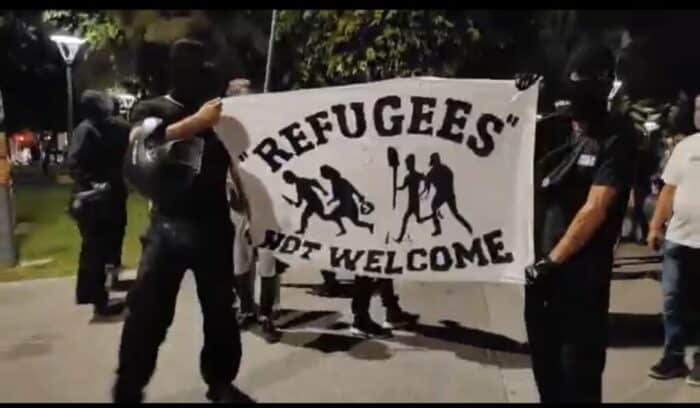The House legal committee began discussions on Wednesday regarding a proposed bill making it a criminal offence for protestors to wear masks to hide their identities at public gatherings.
The proposal was put forward by Disy MPs Nikos Tornaritis, Fotini Tsiridou and Nikos Georgiou.
According to the proposal, any individual participating in a demonstration or assembly who intentionally covers his or her face without reasonable cause, under circumstances that reasonably suggest the intention of committing a crime, would be liable for an offense.
Upon conviction, the individual would face imprisonment not exceeding two years or a fine not exceeding €4,000, or both.
Several EU countries, including France, Germany, Austria, Denmark, Belgium, Spain and Italy, have similar laws prohibiting face coverings during protests.
The primary aim of the proposal is to protect and ensure the right to peaceful assembly, enshrined in Article 21 of the Constitution, Article 12 of the EU Charter of Fundamental Rights and Article 11 of the European Convention on Human Rights.
The proposal also seeks to align with the jurisprudence of the European Court of Human Rights (ECHR), which places an obligation on states to protect peaceful protests from disruptive elements while ensuring the right for people to demonstrate without fear of violence from others.
Committee president Nikos Tornaritis emphasised the need for legislation to safeguard the majority of people taking part in demonstrations, while protecting their physical integrity, property and peace.
He also underlined that the proposal is not about allowing arbitrary actions but rather establishing safeguards against potential dangers committed by people hiding their identity.
“We need to reach a proposal that will go to the plenary and provide these tools to the police,” he said.
“This proposal was welcomed by everyone, but there were observations, and we are open to achieving the best possible outcome.”
Disy’s Georgiou and Tsiridou expressed their support for the proposal, adding that it addresses a serious gap in the law.
Tsiridou also argued that it is essential to provide law enforcement with the necessary tools and send a strong message to society.
Akel MP Andreas Pasiourtidis argued that recent incidents in Chlorakas and Limassol were not caused by legislative gaps, pointing out that the police’s inability to execute operational plans or the absence of such plans cannot be justified by the need to improve or fill a legislative gap that may exist at present.
Pasiourtidis added that currently the law allows any police officer to request identification from anyone with a covered face, and refusal constitutes a criminal offence.
He also suggested that practical issues might arise in situations with a high number of individuals covering their faces.
On the part of the police, assistant chief Yiannis Georgiou said that the force should discuss the proposal with the Legal Service, but that, in principle, he agrees with its provisions.
“However, there are issues that need to be clarified and time should be given for discussion and clarification so that the proposal does not conflict with the Constitution,” Georgiou said.
The head of police union Isotita Nikos Loizides said that the proposal addressed a serious gap in the law and that the police “must have the upper hand against offenders and criminals who kill people with Molotov cocktails in public places and disrupt public events”.
His opinions were echoed by the president of the independent union of Cyprus’ public employees (ASDYK) Lukas Christou and by the head of the Cyprus Police Association Kyriakos Charalambous.







Click here to change your cookie preferences